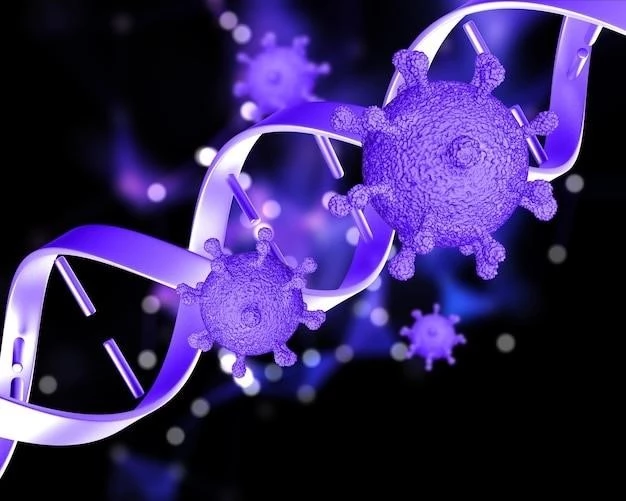Overview of Adenosine Deaminase Deficiency
When discussing Adenosine Deaminase Deficiency‚ it is crucial to cover key aspects such as Symptoms and Signs‚ Diagnosis and Testing‚ Treatment Options‚ Gene Therapy‚ Children affected‚ Research Progress‚ and Support Resources for patients․
Introduction to Adenosine Deaminase Deficiency
Adenosine Deaminase Deficiency is a rare genetic disorder that affects the immune system‚ leading to a compromised ability to fight infections․ This condition is caused by a defect in the gene responsible for producing adenosine deaminase‚ an enzyme crucial for immune function․ Individuals with ADA deficiency often experience severe and recurrent infections‚ failure to thrive‚ and other immune-related complications․
Understanding the basics of ADA deficiency‚ its impact on the body‚ and the importance of early diagnosis and treatment is essential in managing this condition effectively․ Stay informed about the symptoms‚ diagnostic procedures‚ available treatments‚ gene therapy advancements‚ and support systems to provide the best care for individuals affected by Adenosine Deaminase Deficiency․
Symptoms and Signs of ADA Deficiency
Recognizing the symptoms of ADA deficiency is crucial for early intervention․ Common signs include frequent infections‚ failure to thrive‚ chronic diarrhea‚ developmental delays‚ and skin rashes․ Individuals may also experience pneumonia‚ severe combined immunodeficiency‚ and autoimmune disorders․ Promptly consulting a healthcare provider upon noticing these symptoms can lead to timely diagnosis and appropriate management to improve quality of life․
Being vigilant of subtle changes in health and seeking medical advice promptly can help in identifying ADA deficiency early․ By understanding the symptoms and signs associated with this condition‚ caregivers and individuals can work closely with healthcare professionals to develop a personalized care plan and address any concerns effectively․
Diagnosis and Testing for ADA Deficiency
Diagnosing ADA deficiency involves a series of tests and evaluations to confirm the presence of the condition․ Initial screenings may include blood tests to assess levels of adenosine deaminase enzyme activity․ Genetic testing is often conducted to identify specific gene mutations responsible for the deficiency․ Additionally‚ immune system evaluations and assessments of clinical symptoms play a crucial role in diagnosing ADA deficiency accurately․
Consulting with specialized healthcare providers‚ such as immunologists or geneticists‚ can aid in obtaining a precise diagnosis and developing a comprehensive treatment plan tailored to the individual’s needs․ By undergoing appropriate diagnostic procedures and tests‚ individuals suspected of having ADA deficiency can access timely interventions and support services to manage the condition effectively․

Treatment Options for Adenosine Deaminase Deficiency
Managing Adenosine Deaminase Deficiency involves a multidisciplinary approach focusing on immune system support and symptom management․ Enzyme Replacement Therapy (ERT) aims to supplement the deficient adenosine deaminase enzyme to enhance immune function․ Hematopoietic Stem Cell Transplantation (HSCT) offers a potential cure by replacing the faulty immune cells with healthy ones․
It is essential to work closely with healthcare professionals to determine the most suitable treatment plan based on individual factors such as age‚ overall health‚ and disease progression․ By exploring available options and staying informed about advancements in ADA deficiency treatments‚ individuals can make informed decisions to improve their quality of life and well-being․
Gene Therapy for ADA Deficiency
Gene therapy offers a promising approach for treating Adenosine Deaminase Deficiency by correcting the genetic mutations responsible for the condition․ This innovative treatment involves introducing functional copies of the ADA gene into the patient’s cells to restore enzyme production․ By replenishing adenosine deaminase levels‚ gene therapy aims to improve immune function and reduce the impact of ADA deficiency on individuals․
Individuals considering gene therapy for ADA deficiency should consult with healthcare providers specializing in genetic disorders to assess eligibility‚ understand the procedure‚ and explore potential benefits and risks․ Staying informed about the latest advancements in gene therapy research can empower patients and caregivers to make informed decisions regarding the management of Adenosine Deaminase Deficiency․
ADA Deficiency in Children
Adenosine Deaminase Deficiency can significantly impact children‚ affecting their immune system development and overall well-being․ Early recognition of symptoms such as recurrent infections‚ growth delays‚ and persistent illnesses is crucial in diagnosing ADA deficiency in children․ Timely intervention and appropriate treatment can improve the quality of life and long-term outcomes for pediatric patients with this condition․
Parents and caregivers of children with ADA deficiency should work closely with healthcare providers to monitor symptoms‚ adhere to treatment plans‚ and provide necessary support․ Understanding the unique challenges faced by children with ADA deficiency and accessing specialized care facilities can ensure comprehensive management and improved health outcomes for pediatric patients․
Research and Breakthroughs in ADA Deficiency
Ongoing research into Adenosine Deaminase Deficiency focuses on advancing diagnostic methods‚ exploring new treatment options‚ and enhancing the understanding of the underlying genetic mechanisms․ Breakthroughs in gene therapy techniques show promising results in correcting ADA gene mutations and improving immune function in affected individuals․ Clinical trials and studies aim to further refine therapeutic approaches and enhance outcomes for patients with ADA deficiency․
Staying informed about the latest research findings and breakthroughs in ADA deficiency can offer valuable insights for patients‚ caregivers‚ and healthcare providers․ By supporting research efforts‚ individuals can contribute to the development of innovative therapies and ensure a brighter future for those affected by Adenosine Deaminase Deficiency․
Support and Resources for ADA Deficiency Patients
Accessing support and resources is essential for individuals and families affected by Adenosine Deaminase Deficiency․ Support groups‚ online communities‚ and advocacy organizations can provide emotional support‚ share experiences‚ and offer valuable information on managing ADA deficiency․ Additionally‚ connecting with healthcare professionals specializing in genetic disorders can ensure comprehensive care and access to specialized treatments․
Exploring available resources‚ such as educational materials‚ financial assistance programs‚ and clinical trials‚ can empower ADA deficiency patients to make informed decisions regarding their health and well-being․ By building a strong support network and utilizing relevant resources‚ individuals can navigate the challenges of living with ADA deficiency more effectively․
Conclusion
In conclusion‚ Adenosine Deaminase Deficiency is a complex genetic disorder that impacts the immune system and requires prompt recognition and comprehensive management․ Understanding the symptoms‚ diagnostic procedures‚ treatment options‚ gene therapy advancements‚ and available support resources is crucial for individuals affected by ADA deficiency and their caregivers․
By staying informed about the latest research breakthroughs‚ accessing specialized care facilities‚ and connecting with support networks‚ individuals can effectively navigate the challenges associated with ADA deficiency and enhance their quality of life․ Continued advancements in treatment options and ongoing research efforts offer hope for improved outcomes and a brighter future for those living with Adenosine Deaminase Deficiency․
